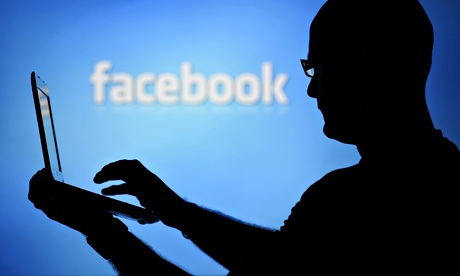
Larry Page, Google's chief executive, expressed his frustration last week with people's lack of trust in "big data" companies such as his own. "We get so worried about [data privacy] that we don't get the benefits," he said, arguing that if Google were to let companies mine our health data 100,000 lives a year could be saved.
Page and others at Google might therefore be unhappy at how Facebook has behaved. During a January week in 2012, around 700,000 English-speaking Facebook users were chosen, without their knowledge or consent, to be emotional lab rats. The researchers found that if you tweak what people see in their Facebook news feed – the scrolling information on your page –to suppress or heighten certain emotive words, readers' emotions will shift to match.
It's not only emotions Facebook can nudge. It can make you vote, too. On the US presidential election day in 2010 it offered one group a graphic with a link to find nearby polling stations, along with a button that would let you announce that you'd voted, and the profile photos of six "friends" who had already done so. Users shown that page were 0.39% more likely to vote than those in the control group who hadn't seen the link, button or photos.
The researchers reckoned they'd mobilised 60,000 voters and that the ripple effect caused 340,000 extra votes.
As the New Republic points out, what if Mark Zuckerberg – or some future Facebook chief – wants to influence a future election? The growing amount of data suggests that subtly influencing people's opinions, and voting turnout, could prod voting in one direction or another. George W Bush's narrow win in the 2000 presidential race is a reminder of how close some elections can be.
It's hardly a new concern; Orson Welles described it in Citizen Kane, whose newspaper-owning proprietor seeks election victory through biasing the news he publishes. The fictional Kane was based on the real-life newspaper tycoon William Randolph Hearst – who then used his influence to suppress Welles. But what's different from the scenario in Kane is that we can't compare what we're seeing with anything else. These aren't biased newspaper articles, they're a sort of biased reality. If our friends all seem a little down, judging by their Facebook posts, or if we're being constantly urged to vote, we can't see the hidden hand behind it. Subliminal advertising has been banned in many countries for decades.
Now Facebook seems to have reinvented it for things that aren't exactly advertising but are about how we feel about each other and what we do. Concerns about Google or Facebook biasing an election might seem far-fetched. But until a few weeks ago, the idea a few people in California would set out to silently change how half a million people feel would have seemed weird too.
The most worrying thing? That hardly anyone is surprised this is possible. In which case, what are the limits of possibility in this tweaking of our online environment? Page may be dismayed at our lack of trust, but we keep being given reasons not to trust what happens with our data. There's no simple resolution, because even if these experiments stop being published, we can't be sure they'll stop.

